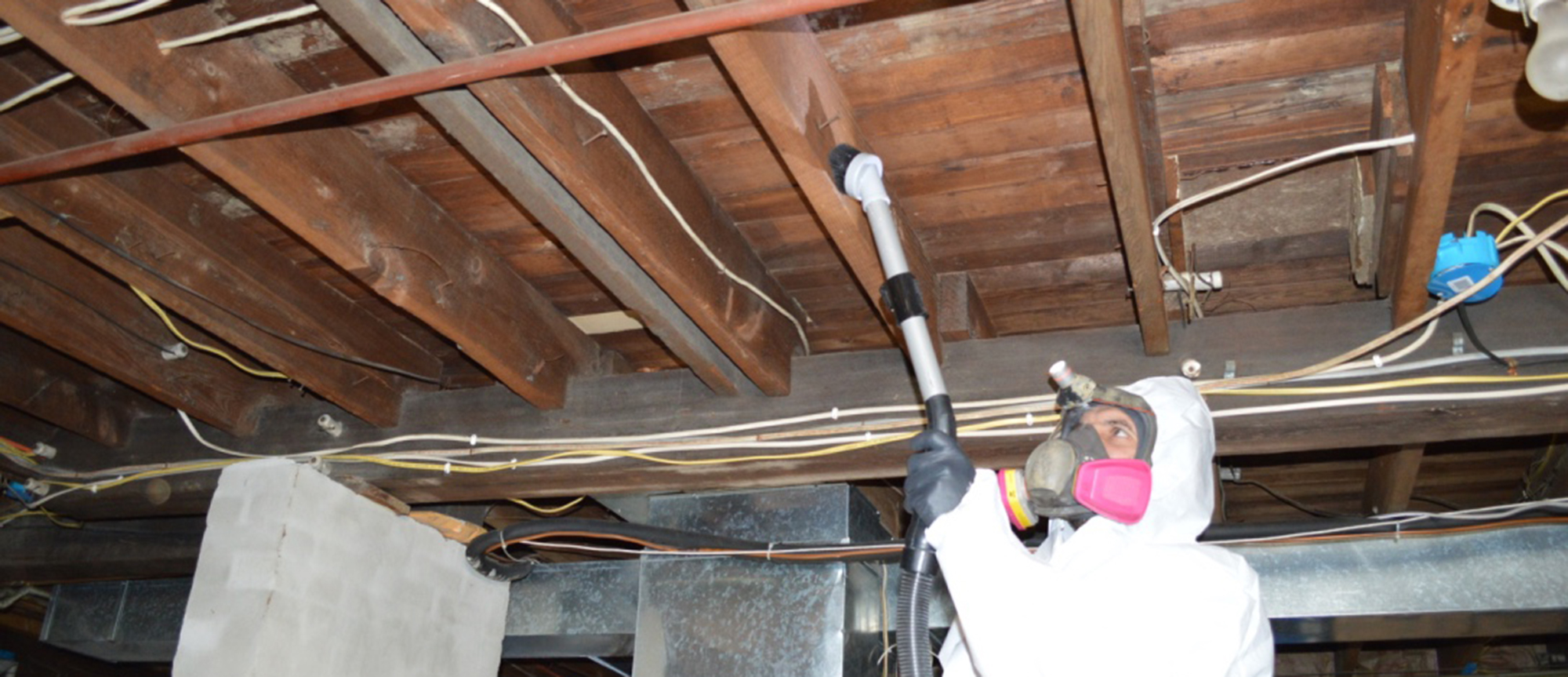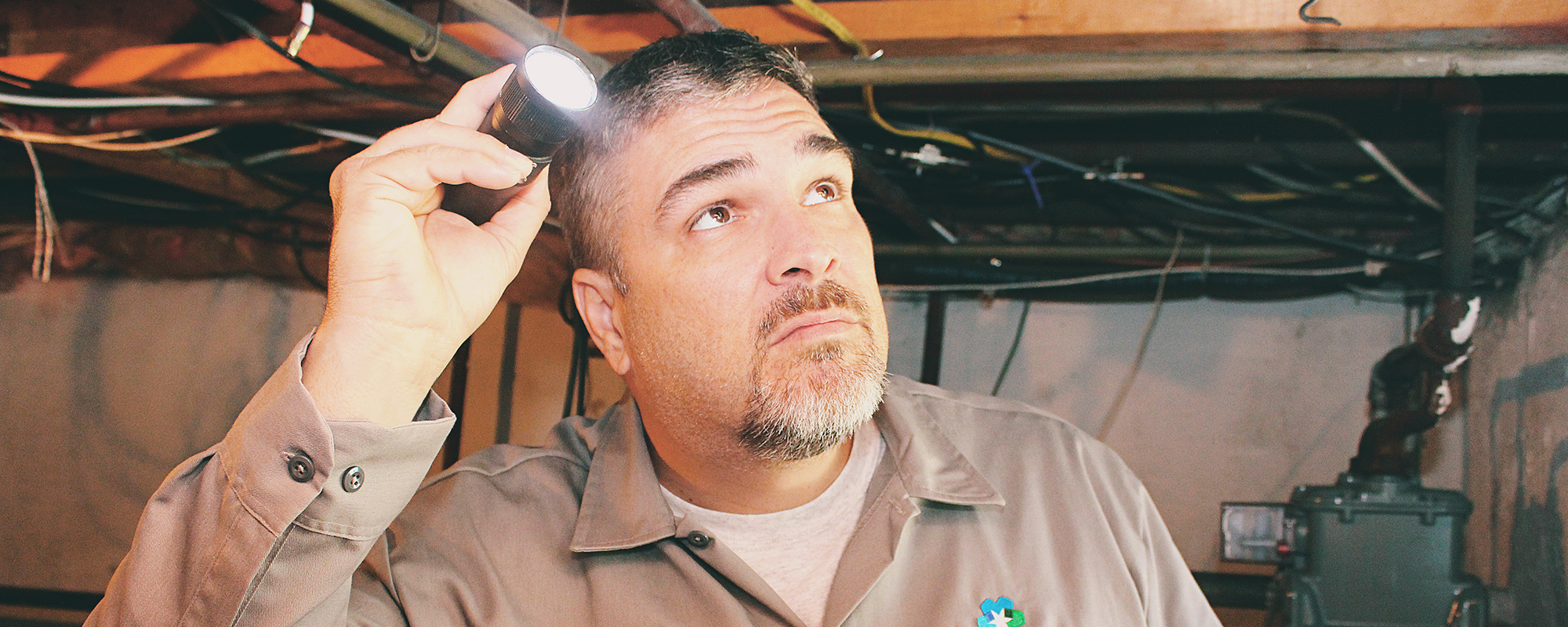
All indoor environments hold the potential to become a home for extensive mold growth. There is plenty of of organic matter to feed on, and indoor temperatures, we deem comfortable, are ideal to sustain mold. The only variable that inhibits mold growth is an inadequate moisture source. Therefore, the key to preventing mold growth indoors is constant moisture control.
Humidity and Its Role in Mold Growth in New Jersey
Often times, property owners only think about moisture control in the case of water intrusion. It is rather obvious… no one wants leaky property or a property that floods. Situations like a major flood cleanup in South Jersey is rather straightforward. However, property owners tend to neglect the less glaring moisture concerns. Water vapors, though gaseous and inconspicuous, can be just as threatening as water intrusion. Controlled levels of water vapor will do no harm to an indoor environment until the vapors have the opportunity to return to their liquid state and settle onto porous materials. If this occurs and is ignored, there is now enough moisture to sustain mold growth.
In some mold cases, the cause of the mold is not as obvious as water intrusion. There can be seemingly no moisture source, yet mold is growing excessively with so signs of stopping. Sometimes this can be the result of indoor humidity or condensation that the resident does not know to be aware of. Moisture concerns of this sort are easy to fix and takes more time to develop into a major issue. However, not only does it often go unaddressed, but if it goes unaddressed for extended periods of time, which leads to major mold problems that could have easily been avoided.
Relative humidity refers to the percentage of water vapor in the air, which is contingent on temperature. A relative humidity of 30%-50% is ideal depending on the environment that the property is located. So long as humidity levels are maintained and there is not a sudden dramatic change in temperature, there is not enough moisture to allow mold growth. However, as relative humidity climbs above 50% and stays above 50% for a period of time, mold growth is almost inevitable. It is very important to monitor and control indoor humidity.
Due to the nature of mold growth itself, in addition to the inconspicuous nature of humidity, sometimes mold caused by humidity can go unnoticed for a long time. In some major mold cases, the mold growth is hidden. Humidity contained in closed off areas (wall voids, ceiling voids, unused attics, basements, and crawlspaces, etc.) can lead to hidden mold growth within your Southern New Jersey home. All the more reason to be vigilant of the moisture levels of your home. If unchecked, hidden mold will spread exponentially without to much warning.
Humidity can fluctuate in different parts of the world, so you should know what is considered normal humidity in your local environment.
Humidity is especially important to monitor here in the Northeast U.S. Summers are hot and muggy here in Southern New Jersey, and residents need to be more aware of the potential negative side effects of such a damp environment. Some clear signs of a indoor humidity problems include condensation on windows, pipes, and walls. If you notice condensation, it means that the water vapors in the hot air have come into contact with a cool surface causing the vapors to settle into a liquid state. If you notice condensation, dry the surface immediately and address the source of moisture. It might be advisable to call in a mold professional if it seems to be a serious problem.

Tips for Indoor Humidity Control in South Jersey
Prevention is always going to be the best approach when it comes to moisture concerns and mold growth. Effective indoor humidity control can go a long way in preventing indoor mold growth. Elevated indoor humidity can leave a property with widespread mold damage that might require the the attention of a mold remediation professional in South Jersey. South Jersey homeowners should implement appropriate indoor humidity control methods to avoid a COSTLY repairs and mold remediation. Here are some key things to consider when working to better your indoor humidity control.
Dehumidifiers:
If humidity levels seem high, consider getting a dehumidifier to help control the moisture, especially for the wetter months. During the summer, air conditioning units can dehumidify indoor space. The consistent air flow from the air vents and fans will help maintain a safe moisture level and establish a consistent temperature to avoid the chance of condensation. Be sure that all HVAC components are well maintained to guarantee that it is working at full capacity and avoid potential negative reproductions of a poorly functioning HVAC system. Regular maintenance can contribute greatly to preventing NJ air conditioning mold.
Air conditioners that run consistently through the warmer months can aid in moisture control. Do not turn the air conditioner off completely if the property is unoccupied. Often times, people try to conserve energy and avoid costly electric bills by turning the air conditioning off while away at work during the day or away on vacation for several days. While this may save a few dollars, it is also exactly how condensation will form on building materials. The sudden increase in temperature in contrast to the cooler air that was once circulating will lead to condensation and moisture build up that will be plenty for mold growth, especially if the home is unoccupied for an extended period of time. Mold does not make a very pleasant welcome home surprise.
Instead of turning the air conditioning off, just turn the temperature up ten degrees, give or take. This way, you are still conserving energy and saving a little on the electric bill. As long as the air conditioner is running at a consistent temperature and allowing for air circulation, the indoor moisture levels should stay at a minimal.
Damp Areas:
Dampness can greatly contribute to humidity issues. Be sure to pay close attention to areas of the property that are especially damp. Routine domestic chores can produce moisture that builds up over time to create a serious issue. Activities as commonplace as showering, cooking, and doing laundry can potentially amount to more serious concerns if the areas are not well ventilated. Make sure that appliances like washer/dryers and stoves have proper vents that circulate air and ensure indoor humidity control. Ensure all appliances that can produce condensation are well maintained and functioning properly (i.e: refrigerators, dishwashers, etc.). Also, check that bathrooms have exhaust fans that are strong enough to properly ventilate the area. A good way to check for sufficiency is to hold a small piece of tissue paper up to the fan. The fan should produce enough suction to hold the tissue in place.
While checking and maintaining ventilation, do not forget to note where all the vents exit. For example, some bathroom exhausts, dryer vents, and stove vents exit into the attic. This can be an issue that can compromise indoor humidity control. All that moisture being circulated out of the main living spaces end up exiting into the attic. That moisture tends to go unnoticed for extended periods of time until mold symptoms start to present themselves. Properly installed vent systems should, in actuality, exit outside to ensure that no moisture is being retained indoors. However, in a less than ideal situation where the vents exit into the attic, be sure the attic gets good air circulation. Sometimes, in this case, vents will need to be installed into the attic, or perhaps a dehumidifier might be needed.
Air Flow:
Air flow and sufficient air circulation can greatly help with indoor humidity control. If possible, space out furniture away from walls and leave doors throughout the property open (ie: bedroom doors, closet doors, bathroom doors, etc.). Try to avoid excessive clutter, especially porous items stored in dank areas like the basement or attic. Clutter retards airflow in a room. Porous items hold moisture and the organic material within will feed mold growth. If it has been unused for at least two years and hold no sentimental value, get rid of it.
For at least 60% of the year people tend to keep all windows and doors closed due to weather. Whether it’s to keep the property warm, cool, or dry, properties are typically closed off to the outdoor air for a good portion of the year. Try to open up windows and doors when weather permits to allow some fresh air to flow through the property. Take advantage of the drier and more mild-weathered days to get some more air circulation, just be sure to close everything back up if it rains.
On nicer days, it is also a good time to take a stroll outside the property and inspect the home for areas of vulnerability to water intrusion. It is important to perform routine checks prior to actual rain to prevent mold development in New Jersey rain.

To review, do not neglect the potential damage humidity and condensation can cause. There are plenty of relatively easy and effective ways maintain effective indoor humidity control. However, if an uncontrolled moisture problem in your home has led to mold, call a trained and certified mold inspector in New Jersey to conduct a thorough inspection to make sure the mold issue is properly resolved AND the moisture source is remedied. If deemed necessary, your mold inspector will provide you a detailed scope of work for professional mold removal in South Jersey. If you find mold in your property and cannot identify the moisture source, a professional can help you. One of the major priorities in mold remediation is to find the source to ensure that the mold won’t have the chance to grow back.


